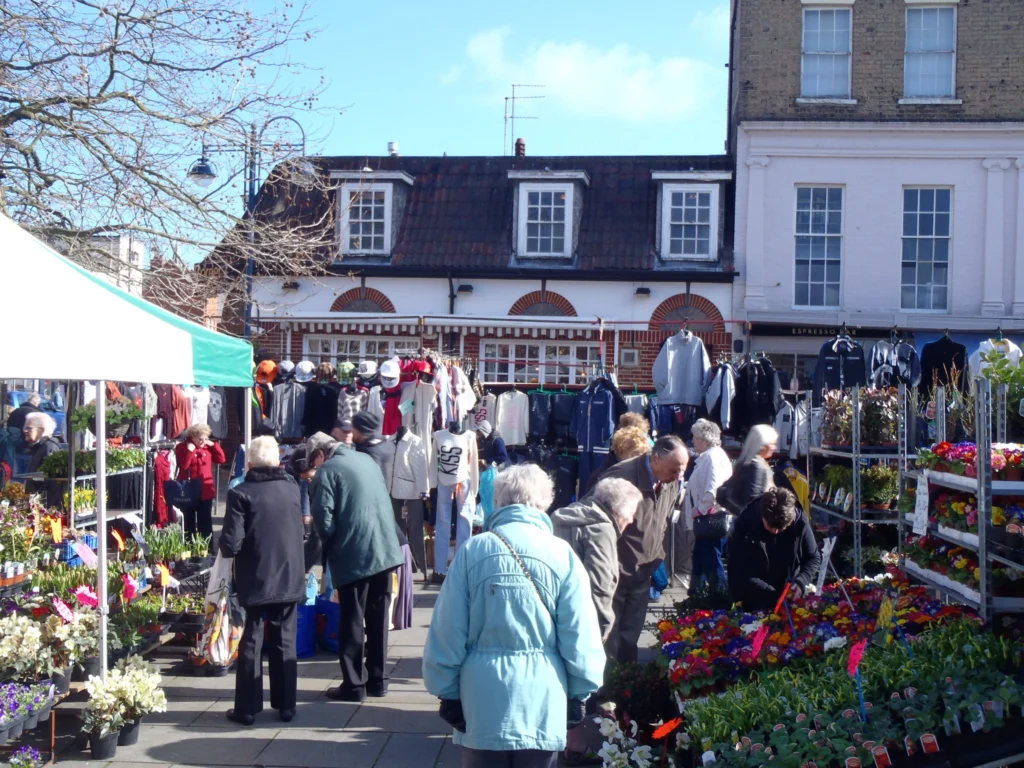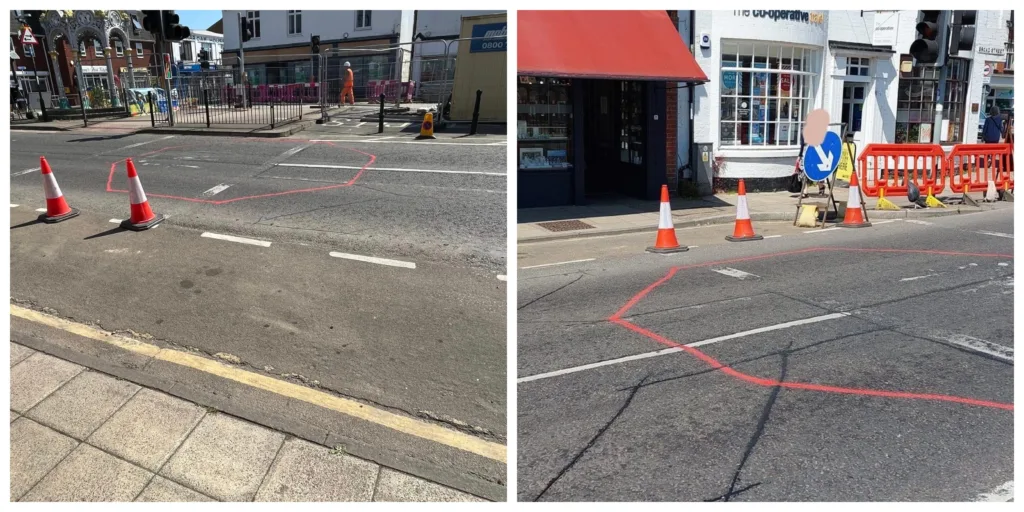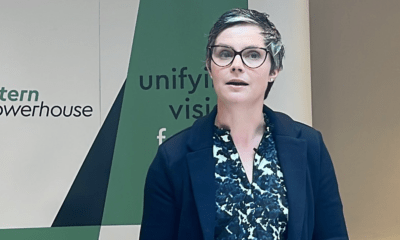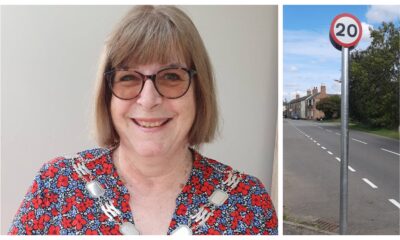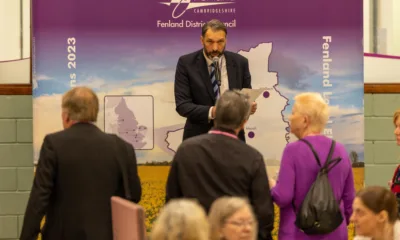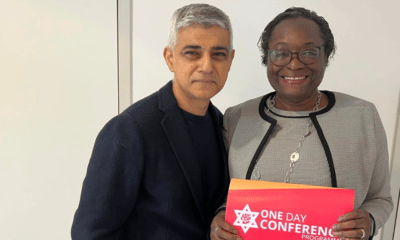Special Report
CAMBRIDGE: ‘Charge of the fight brigade’ as GCP consider congestion
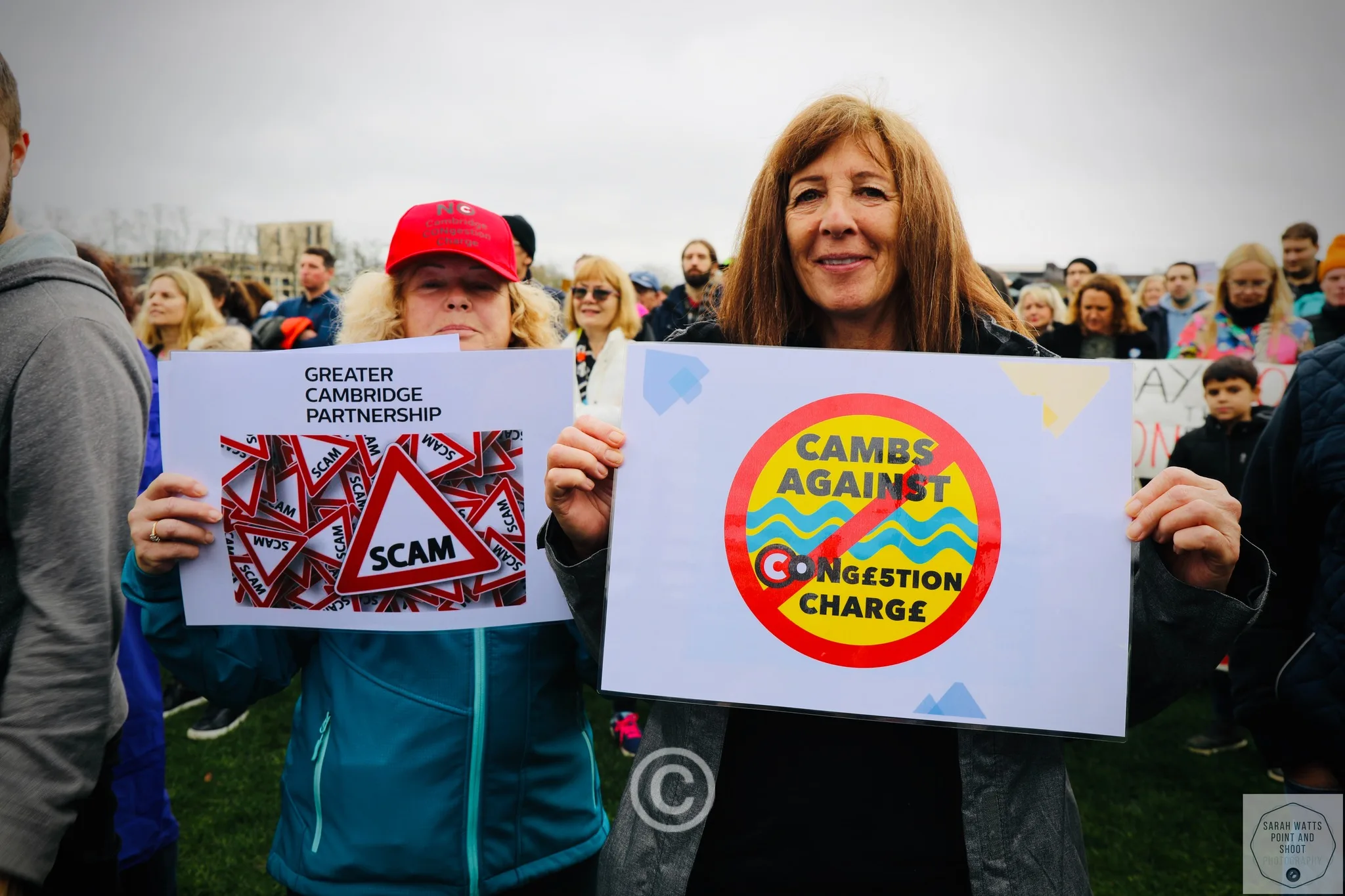
A comprehensive list of issues needing to be tackled prior to any introduction of a congestion charge for Cambridge are outlined in a report to be considered this week.
The list has been put together by Lynne Miles, director of City Access at the Greater Cambridge Partnership (GCP), for its meeting on June 8.
Reminding board members that public transport improvements and City Access strategy “sits at the heart of the City Deal” she effectively says the urgent need remains to reduce congestion and pollution.
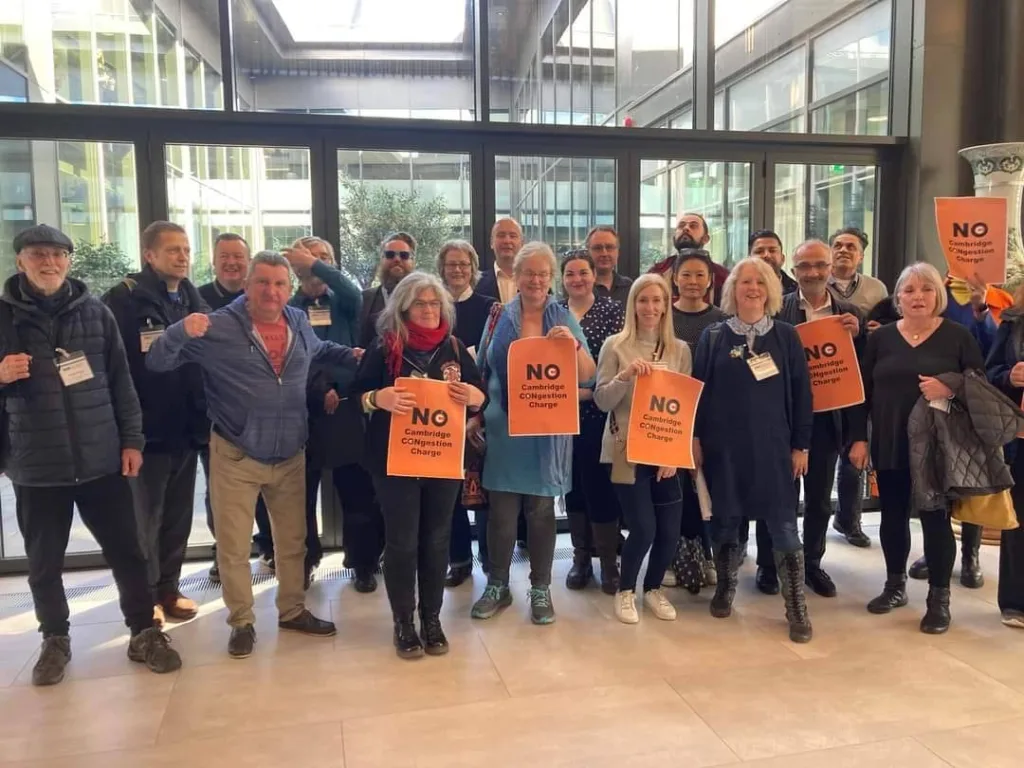
More than 24,000 people responded to Cambridge congestion charge proposals: thousands oppose it but what happens next? The GCP will consider options on June 8.
Her report comes in the wake of a consultation on the Sustainable Travel Zone (STZ) that shows opposition to charging motorists to travel in and around Cambridge.
But equally she is adamant that change must happen.
“Although car traffic has dropped compared to the pre-Covid high, it is almost back to pre-Covid levels,” she said.
“Congestion causes daily misery for people trying to access jobs, education, and services, as well as contributing to high levels of pollution and emissions.”
Ms Miles said: “Any changes to the STZ proposals to reflect public concern would affect the extent to which the bus and sustainable travel packages set out in the consultation can be delivered.
“Future technical work would need to consider what should be prioritised including potential changes to the composition or nature of the benefits delivered and outcomes achieved.
“It may be necessary to make difficult choices in prioritising spend between providing new bus services, subsidising bus fares and investing in other sustainable travel investment if significant reductions were made to the scope of the STZ.”
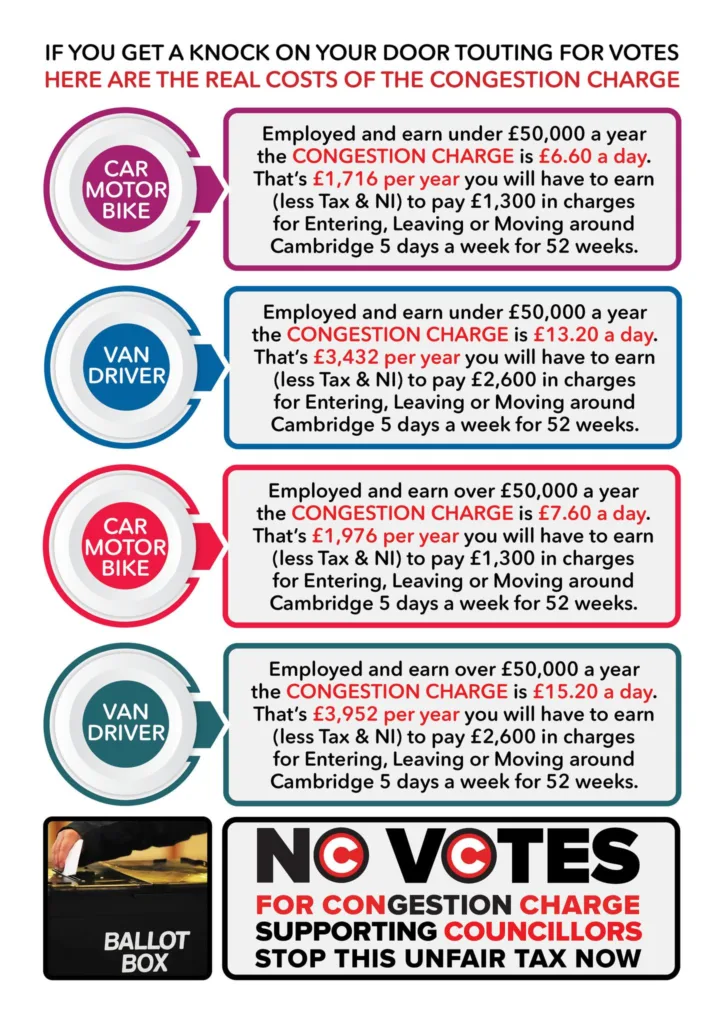
More than 24,000 people responded to Cambridge congestion charge proposals: thousands oppose it but what happens next? The GCP will consider options on June 8.
She added: “In some cases, there may be scope to address concerns about the impact of the STZ through other means rather than making changes to the STZ proposals themselves.
“Any such changes would need to be made in light of the consultation feedback gathered about the bus and sustainable travel proposals in terms of what people most value about the proposals.
“Reductions in the scope of the STZ would not only affect the ability to improve buses and sustainable travel in financial terms.
“Equally as important is the projected impact of the STZ on reducing traffic volumes which was the proposed means of delivering faster and more reliable bus services, and a safer and more attractive environment for walking and cycling.
“Without a substantial reduction in traffic delays, it will be difficult to deliver the improved journey speeds and reliability that consultation responses tell us is a high priority.”
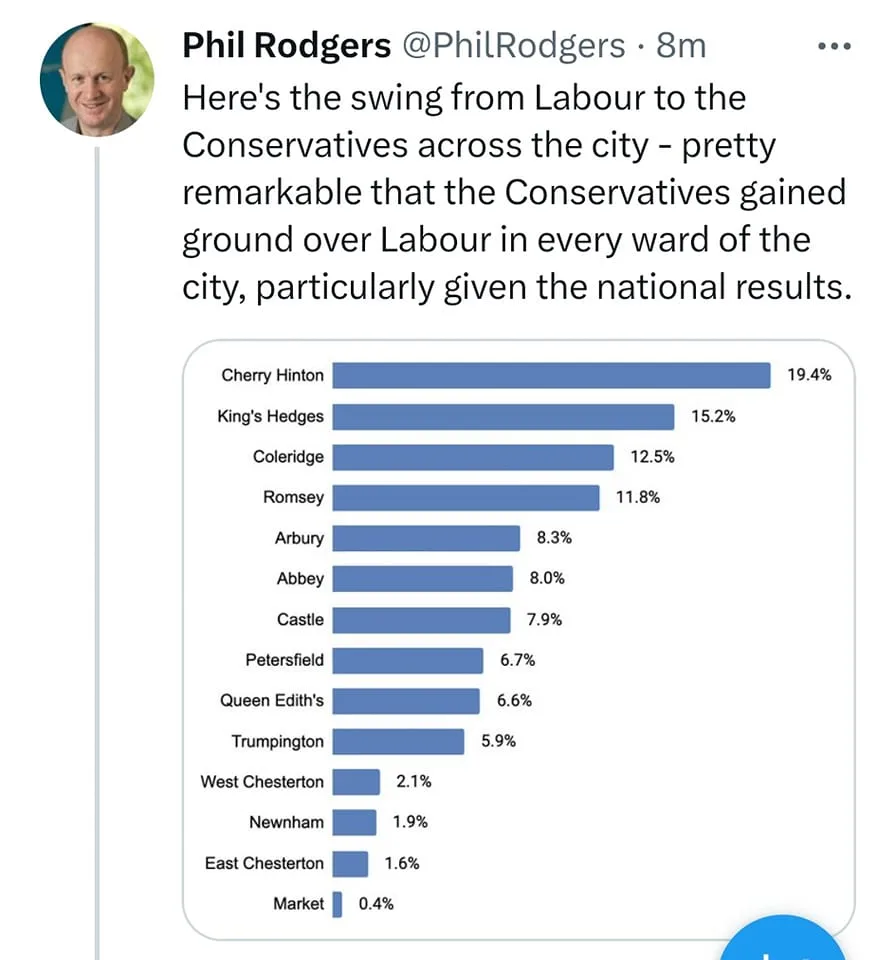
More than 24,000 people responded to Cambridge congestion charge proposals: thousands oppose it but what happens next? The GCP will consider options on June 8. Twitter post
Ms Miles address some of the “themes and concerns” around the STZ that she says were prominent across the survey.
1: Whether Addenbrookes and other hospitals should be within the zone
2: Whether the proposed zone is too large e.g., should it cover only the city centre
3: Whether residents should qualify for a discount or exemption from paying the charge
4: Concern about the impact on businesses, especially small businesses and the self-employed reliant on goods vehicles
5: Whether the charge for cars and vans is too high, and whether motorbikes should be liable to pay
6: Whether the hours of operation are too long and should be peak(s) only
7: Concern about the impact on older people, those with mobility impairments or who find using public transport difficult and those on low incomes
8: Questions about how the discounts and exemptions were defined and how they would operate
9: Concern about the impact of the scheme on informal and unpaid carers
10: Whether electric vehicles should be exempt from the charge, or receive a discounted rate
11: Concerns about the difficulty of ‘trip chaining’ on public transport for example childcare drop-off on the way to work.
12: Whether alternative means of funding some or all the proposed improvements might be considered.
Ms Miles said: “There are a variety of potential changes to the consultation proposals that could address the concerns raised.”
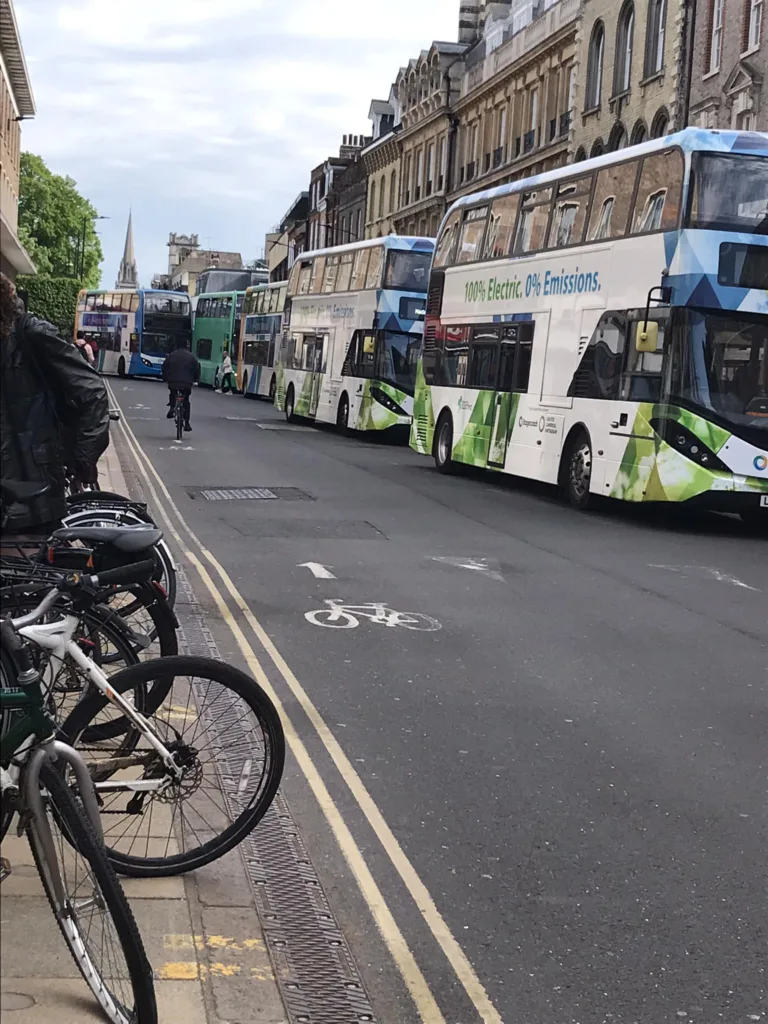
More than 24,000 people responded to Cambridge congestion charge proposals: thousands oppose it but what happens next? The GCP will consider options on June 8. Buses key to its potential implementation.
These she said could include, for example, changing the core parameters (i.e., hours, opening years, charge rate or boundary).
There could also be discussions about who is required to pay and under what circumstances (for example amending or adding discounts, exemptions, reimbursements, and user account benefits).
“The implications of any one change would depend on which other measures it is combined with,” said Ms Miles.
“For example, the revenue and traffic reduction implications of exempting all car travel to the hospital would vary depending on whether road charging hours were all day (as per the consultation), or whether they were changed (for example to peak hour charging only).”
She wants the GCP to identify one or more packages of potential changes that could be assessed in detail.
But she said it would not be affordable, nor address the problem of congestion, if all of the changes being suggested (she’s drawn up a list) were made “and decisions would therefore need to be taken about relative priority of changes.
“Future decisions will need to balance the need to respond to concerns about the STZ with widespread support for the improvements to public transport, walking and cycling the STZ is intended to achieve”.
Her reports also notes respondents for business who had flagged concerns about the impact of the charge on business costs, especially for smaller businesses and those reliant on commercial vehicles such as trades, haulage, and logistics.
“This concern was particularly acute amongst haulage companies who feel that they have least (or often no) option to avoid the charge by changing mode,” she said.
“For cars, a key consideration would be whether a reduced charge would have a sufficient deterrent impact on car use, especially since inflation would continue to erode the real value of the charge by the time it is introduced.
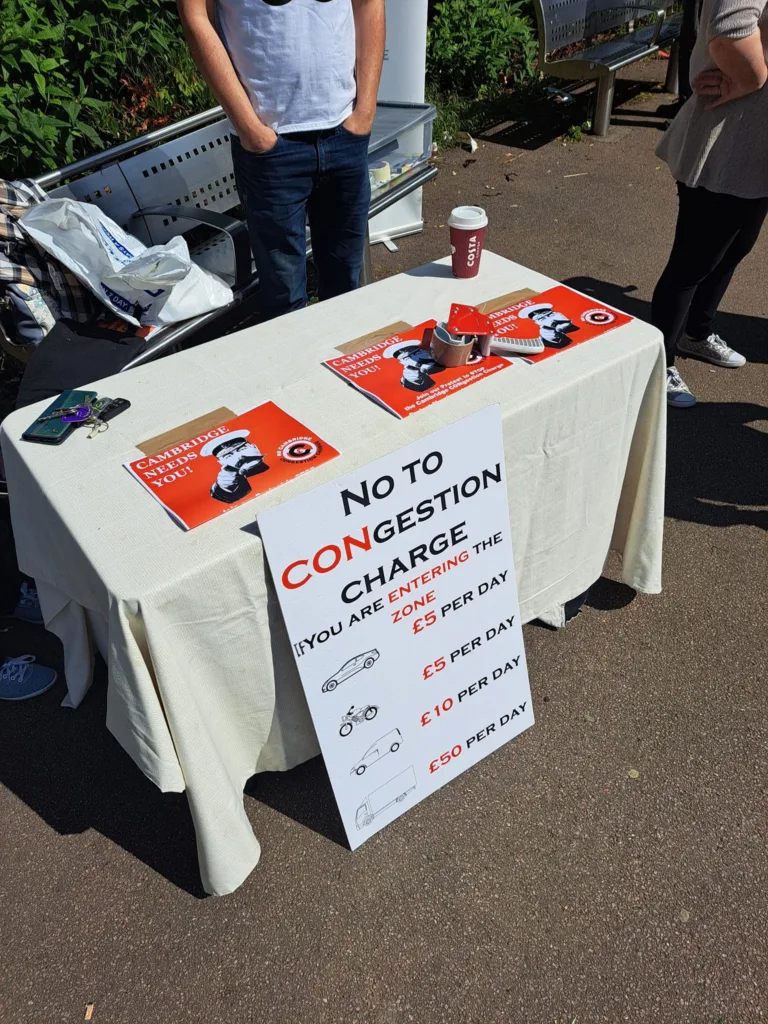
More than 24,000 people responded to Cambridge congestion charge proposals: thousands oppose it but what happens next? The GCP will consider options on June 8.
“The principle of ensuring the bus is a more attractive financial option than car would be difficult to maintain with any reduction in the car charge.”
One example of many Ms Miles has set out about potential changes would be the removal of the Cambridge University Hospitals (Addenbrookes) site from the zone.
“Removing the hospitals from the STZ area would raise several practical and policy issues that may be insurmountable,” she said.
“However, the possibility of exempting all hospital patients and their visitors as an alternative – a ‘virtual’ removal – could be explored further.
“The Cambridge Biomedical Campus on which the hospitals are located is a large traffic generator in the south of the city and on the wider road network, and the site of significant future job (and travel) growth.
“It is not likely to be possible to remove the hospitals from the zone boundary without also excluding the wider CBC and main approaching roads.
“Removing the CBC would therefore mean taking a large ‘wedge’ out of the proposed STZ with significant traffic implications for surrounding residential areas.
“Or reverting to an inner ring road boundary. Moreover, taking the CBC out of the zone would not fully address the consultation concern about paying to access the hospitals.
“Whilst it would mean that those living outside the zone (in Cambridgeshire and beyond) could drive to the hospitals without incurring a charge, residents of the zone (in the City of Cambridge) would still to pay to access the hospital, because their start point would be within the STZ.”
One answer to this could be voiding the charge for all hospital patients and their visitors, based on ANPR records at hospital car parks, or by giving a number of free day passes to all account holders.
Ms Miles said a broad set of proposals for discounts, exemptions, and reimbursements (DERs) was set out in the consultation document and included proposals.
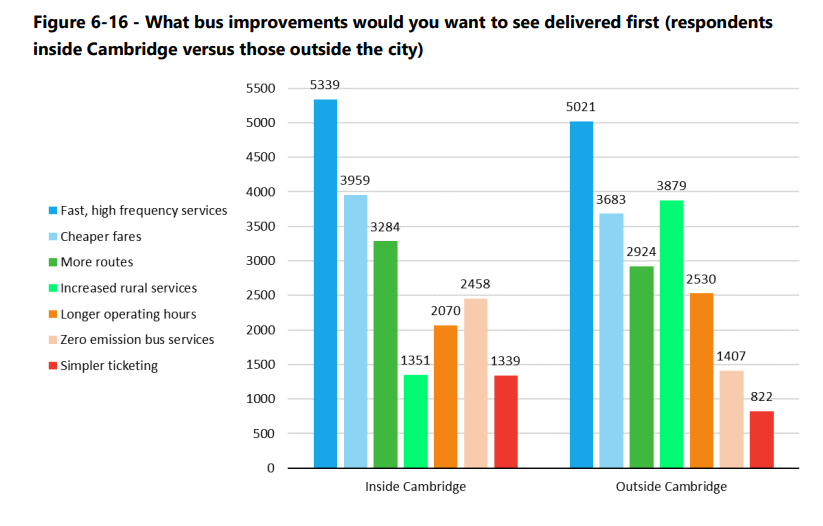
More than 24,000 people responded to Cambridge congestion charge proposals: thousands oppose it but what happens next? The GCP will consider options on June 8.
If work to develop a STZ were to progress, more detailed design of these would be required taking into account consultation feedback.
One idea being looked at is to allocate a number of ‘free’ days of car travel to account holders, or a percentage discount on all days, to allow for the many individual circumstances people have raised in which they feel they have no option but to use a car but do not otherwise qualify for an exemption.
This could include trips as diverse as taking an elderly parent to a medical appointment; evening leisure activities; carrying bulky parcels to the post office; visiting a DIY shop; volunteering at a food bank; taking a child across town for a sports club; teachers carrying books home for marking; or simply doing a big grocery shop.
“Giving account holders a budget of free (non-charged) days to use for various purposes as they see fit could achieve a level of flexibility to people’s real-life circumstances and reflect a broader range of needs than can be defined through a series of specific individual exemptions,” said Ms Miles.
“There would be options as to how many free days, whether they were all day or off peak, whether they should be entirely free or just discounted, and whether they should apply just to residents of the CPCA area, or to all account holders.
“There would also be choices about whether and how quickly they should taper off over time, as the scheme and the travel infrastructure improvements it enables ramp up.
“The principle could also be extended to business and charity accounts where, again, there would be potential to target the proportion of free days, for example based on size or location of business, or the nature of the charity.
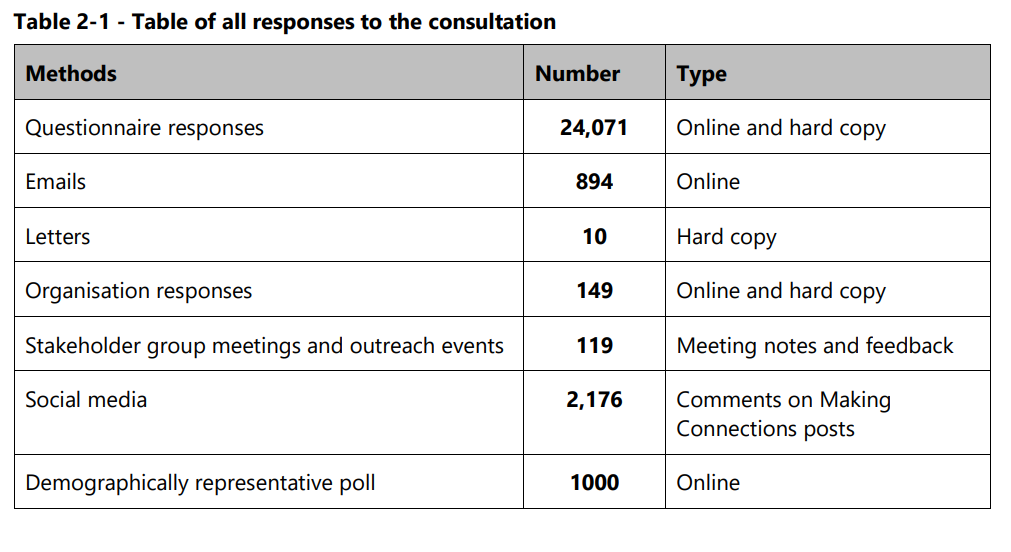
More than 24,000 people responded to Cambridge congestion charge proposals: thousands oppose it but what happens next? The GCP will consider options on June 8.
“The cost and impact of this would be highly scalable depending how it was defined.”
Ms Miles said that many of the consultation responses flagged the impact on those on lower incomes as a key concern.
If the decision was taken to progress the STZ further work, she said, would consider how a low-income discount could be best designed, what the qualifying criteria would be and whether and how it could potentially build on or learn from to existing schemes such as the NHS Healthcare Travel Costs scheme.
Ms Miles also reports that exemption for out-commuters near the boundary had been raised as an issue in broader public discourse since the consultation but was not a theme heard strongly in response to the public survey.
Out of a total of around 145,000 comments, some1,500 comments were received saying the STZ charge shouldn’t apply to people leaving the zone.
“There are some who live towards the edge of the proposed zone and work outside of it who feel it unfair that they would be liable for a charge for driving a relatively short distance out of the zone in the opposite direction to peak hour traffic,” she said.
“The counter argument would be that all vehicles on the road contribute to traffic in and around the strategic road network and the key junctions such as Milton Interchange or the M11 and A14 junctions on which all car trips take up capacity irrespective of direction.
“Just as investment in public transport services and infrastructure would give those commuting into the zone a viable alternative for out-commuting, those services would run in two directions, and it would also be easier to commute out of the zone for work with greater investment proposed by the scheme.
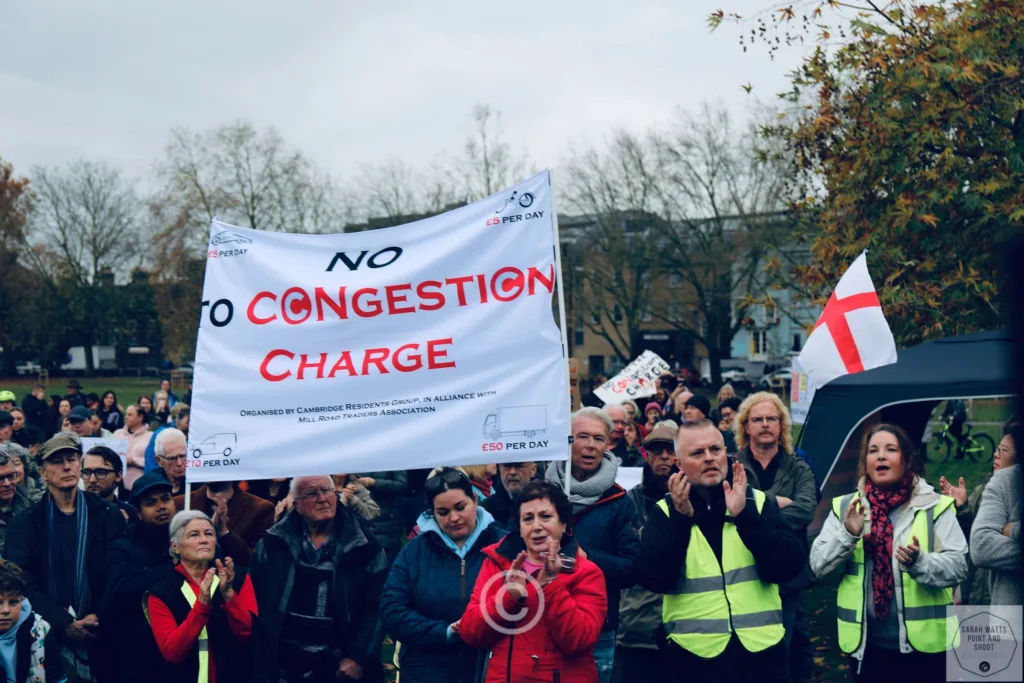
More than 24,000 people responded to Cambridge congestion charge proposals: thousands oppose it but what happens next? The GCP will consider options on June 8.
“Further work would consider this in more detail, but it is likely to be challenging to define an exemption or discount for out-commuters that is fair and enforceable without being administratively costly and complex.”
Next steps.
Ms Miles said this would be to carry out an assessment of potential impacts in terms of:
- the extent to which they address consultation feedback
- overall scheme objectives (traffic reduction; improvements to public transport; improvements to walking, cycling, and wheeling etc)
- operational complexity and enforceability
- costs and revenues
- equalities, social and distributional impacts • deliverability.
Ms Miles does not under estimate the seriousness of the challenge, and the need for a response.
She said that 121 deaths in Greater Cambridge in 2021 were estimated to be attributable to air pollution.
“Transport was also the second largest contributor to carbon emissions in Cambridgeshire in 2020, accounting for 23% of emissions,” she said.
“Congestion undermines the bus network, making services slower, less reliable, and therefore less attractive and ultimately less economically viable.
“This creates a vicious spiral where congestion causes bus services to be worse, leading more people to feel they have no viable alternative other than to drive, which increases congestion and further worsens bus services.
“High levels of congestion also make walking, cycling, and wheeling less safe and attractive as alternatives.
Some parts and people of Greater Cambridge and the wider travel-to-work area are being held back by a lack of any viable public transport or safe walking and cycling routes.”
She added: “Poor transport connections compromise social fairness by limiting access to jobs, education, training, and leisure opportunities.
“This can isolate people and communities, creating a less socially integrated area.
“Without additional funding, existing bus routes are likely to continue to become less viable and more services are likely to be reduced or withdrawn.”
Ms Miles said: “All three GCP partner councils have declared a climate emergency.
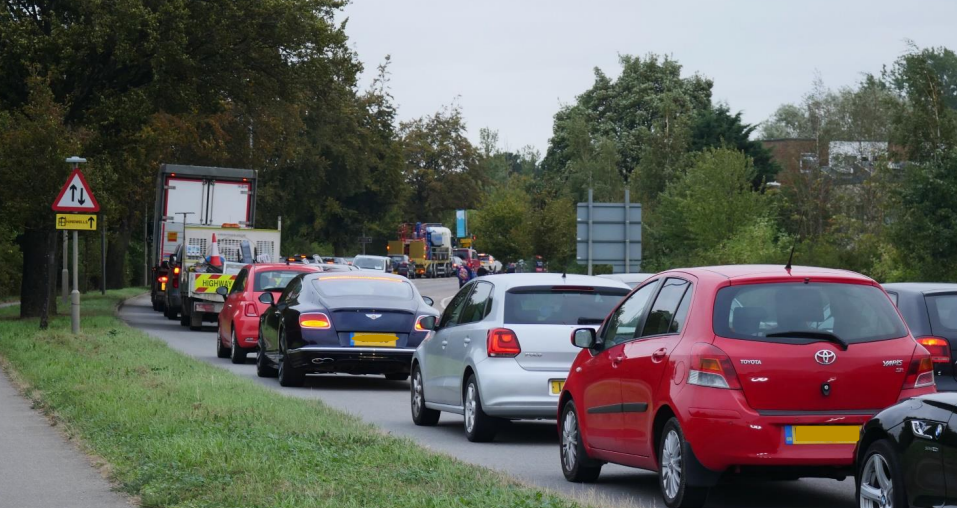
More than 24,000 people responded to Cambridge congestion charge proposals: thousands oppose it but what happens next? The GCP will consider options on June 8.
“Alongside the cost-of-living crisis this makes the delivery of an affordable, attractive sustainable transport network vital if the Greater Cambridge area is to remain a vibrant and attractive place to live, work visit, and offer an excellent quality of life to its residents.
“To address current and future transport issues, tackle climate change, and secure the inclusive and sustainable growth of our area, we need to reduce car dependence and promote the use of sustainable modes of transport wherever possible.”
Offering a real competitive alternative to their car has three key elements, she said:
- New sustainable transport infrastructure.
- An enhanced network of affordable public transport services; and
- Creating space for sustainable transport and discouraging car use.
“The bulk of investment in the GCP’s sustainable infrastructure plan is building new, high-quality, segregated infrastructure for active travel and public transport,” she said.
“Delivery of the GCP’s infrastructure programme is underway with improvements being made across Greater Cambridge over the next 4 years.”
She said the GCP’s Making Connections aim is to create the conditions to provide more people with genuine alternatives to car travel “which must happen first, before discouraging car use for those who then have alternatives”.
She concluded: “The introduction of measures that discourage car use must be timed to ensure people have realistic alternatives in place first.”
BACKGROUND
A report outlining the results from the Greater Cambridge Partnership’s Making Connections public consultation was published a week ago.
More than 24,000 people responded to the consultation, which proposed measures to transform the bus network alongside better walking and cycling infrastructure that would be funded in the long term by the phased introduction of a road-user charge.
The plans were also designed to significantly reduce use of congestion – freeing up road space for buses to run more reliably and cycling to be safer.
The key findings and the wide-ranging views – both in favour and against the proposals – are contained in a paper to the GCP’s Joint Assembly which meets on 8 June.
The headlines are:
- Over 70% of people were in favour of the future transport network – with more buses to more locations, cheaper fares and longer operating times supported by better walking and cycling infrastructure to give people faster, cheaper, and more reliable travel alternatives to the car.
- 58% of respondents opposed the proposed Sustainable Travel Zone (STZ) as the means for delivering the transport vision. Opposition increased with age from 35 to 64 with 55–64-year-olds the most likely to oppose. Those who lived outside of Cambridge were also more likely to oppose.
- 34% of people support the STZ as proposed. Support was highest among the youngest and the oldest respondents, who are more likely to find it most difficult to access education and healthcare due to the limitations of the existing bus network. Support was highest in the city centre and west of the city.
- Around half of those who oppose the STZ did support the vision for better buses.
- The views from organisations such as business, healthcare and others were broadly supportive of the plans but with caveats about the impact on staff or those who were vulnerable.
- Additional representative opinion polling was carried out which showed opposition and support for a road user charge was more balanced.



